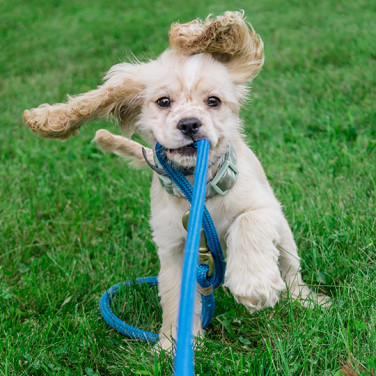ARTICLE
How to Introduce Your Dog to Your Newborn: Tips and Tricks
페이지 정보
본문
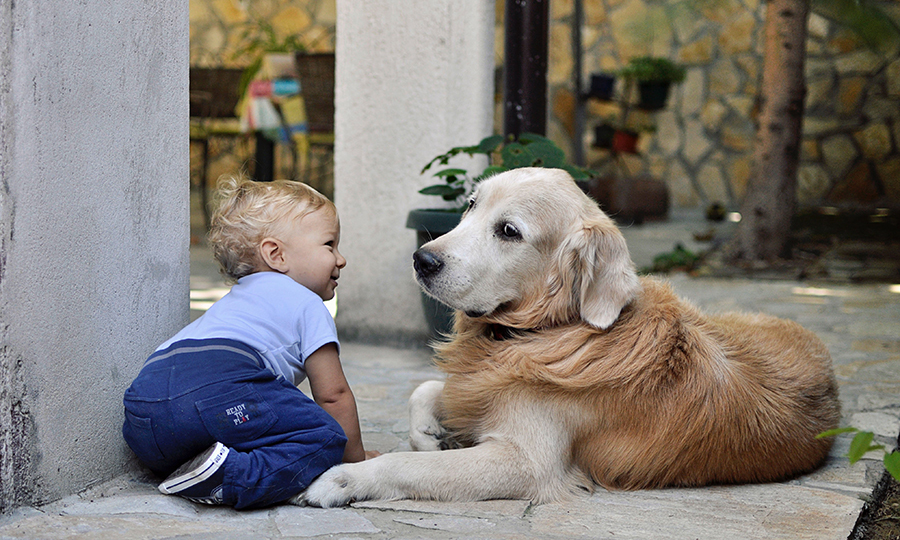
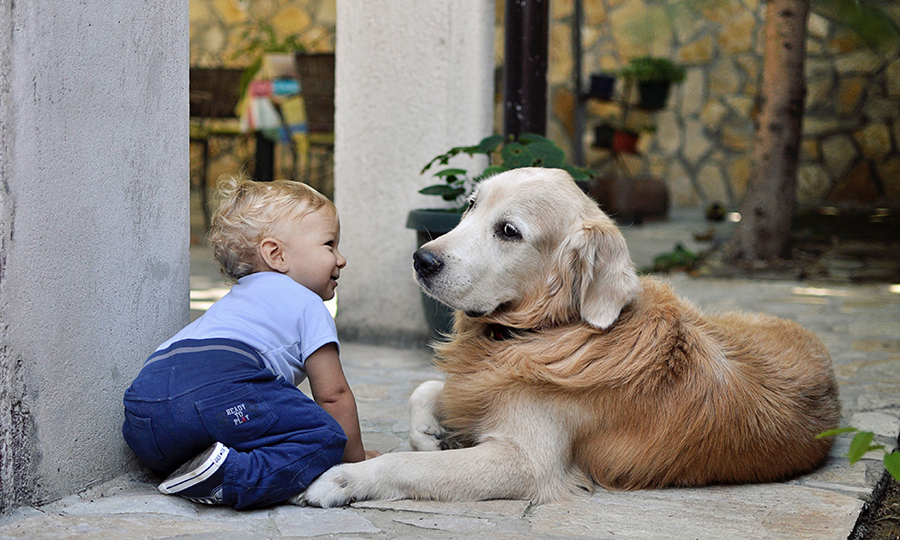
Why it's important to prepare your dog for a newborn
Bringing a newborn baby into your household is a major life event, and if you're a dog owner, you may be wondering about the steps it takes to safely introduce your pup to your new addition to the family. While some dogs naturally take to babies, others may need more guidance and training to ensure a safe and happy coexistence. In this article, we'll provide tips and advice for introducing a newborn to a household with a dog, including how to prepare your dog in advance, how to train them to behave appropriately around your newborn, and how to handle common concerns such as whether dogs can lick newborns. Whether you're a seasoned dog owner or a first-time parent, we hope this article will offer valuable insights to help make the transition smoother for both your dog and your little one.
Preparing your dog for the arrival of your newborn
The first step in introducing your dog to your newborn is taking action months before the due date. Major adjustments and changes to a dog’s environment can be quite stressful and it is essential to take preparation measures to help make the transition as smooth as possible.
Here are some tips we have included to help prepare your dog for the arrival of your newborn:
-
Gradually introducing your dog to baby-related items
It is a great idea to introduce baby-related items to your dog months in advance. Introduce your baby's cribs, strollers, car seats, toys, etc. to your dog well in advance to provide a stress-free and controlled environment with these items before your baby arrives. This will help your dog get used to the new objects and associate them with positive experiences, rather than seeing them as a threat.
-
Accustom your dog to the sounds of a crying baby with audio recordings
Some dogs can be sensitive to the sounds of a crying baby, so it may be a good idea to familiarize your dog with some audio recordings you can find online before the real thing arrives. Starting on lower volumes and gradually increasing the volume over time can help your dog acclimate to the new environment.
-
Be aware of the change in your pet’s routine
Changes in a dog’s routine can have a variety of effects depending on the dog. A new baby will significantly change the household routine and it is important to prepare your dog for these coming changes. For instance, your dog may not receive the same amount of attention at the same time of day. Reactions to the change in routine differ from dog to dog, but it is important to find the time to offer that same love and attention when you can.
-
Teaching your dog to like other children as well
If your dog hasn't been around other children before, it's a good idea to gradually introduce them to other kids to help them become comfortable around children. This will also help your dog learn how to behave appropriately around kids and reduce the likelihood of any accidents or negative experiences.
Introducing your dog to your newborn
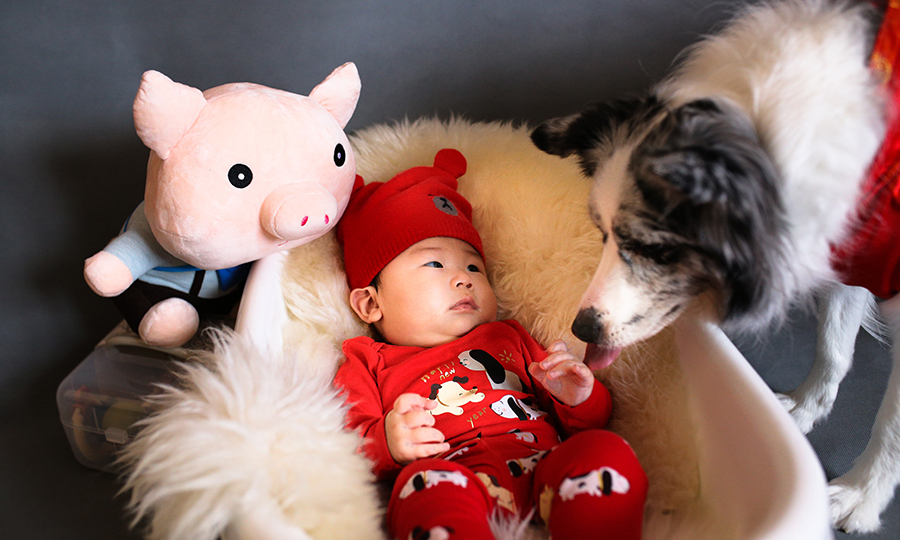
D-day is here and it is time to introduce your newborn baby to your dog. When the time comes, it is important to introduce your baby carefully and gradually to ensure the safety of both your newborn and dog.
Here are some tips for introducing your dog to your newborn:
-
Introducing your dog to your baby's scent
We recommend bringing a blanket or piece of clothing that has your baby’s scent on it to your dog. Allow your dog to smell it and inspect it to their heart’s content. The more they familiarize themselves with your baby’s scent will help reduce any potential anxiety or aggression during their first meet.
-
Supervise every interaction between your dog and your baby
Ensure your dog is calm and relaxed before bringing them into the same room as your baby. Keep your dog on a leash and allow them to sniff your baby from a distance at first. Supervise every interaction between your newborn and your dog. If your dog shows any signs of aggression or anxiety, such as growling or barking, remove them from the room and try again later.
-
Training your dog to behave appropriately around your baby with positive reinforcement
Your dog may exhibit behavior such as jumping around your newborn or licking their face. While they will eventually learn how to behave appropriately around the newborn, it is best to address this as soon as possible before an accident occurs. Obedience commands like “no” or leave it” come in handy in these instances. Begin rewarding your dog with treats for calm behavior around your baby. It may require a lot of patience and consistency when correcting any inappropriate behavior around the newborn but you will only have to teach them once. It may be difficult for some dogs to acclimate appropriately, and that is when seeking the help of a professional dog trainer may be necessary.
-
Addressing concerns about dog licking a baby’s face
Many pet parents may be concerned about their dog licking their newborn, but in most cases, this behavior is relatively harmless. Licking behavior is a way dogs show affection or a way for them to comfort them. The only caution to consider, is you want to prevent this behavior if your dog’s mouth is not clean. Ensure that you practice good oral hygiene in your pet’s grooming routine and supervise all interactions between your dog and your baby to prevent any accidental harm.
What not to do when introducing your dog to your newborn
We have gone over a few essential steps to consider when introducing your newborn to your dog. However, there are some things we would like to review of things you should avoid doing as well. Here are some common mistakes to avoid when introducing your dog to your newborn:
-
Rushing the process
It is essential to take your time introducing the different elements described above to your pet. You can overwhelm your pet causing signs of anxiety or aggression. Prepare your pet with appropriate timing to acclimate to the changes in the environment, smells, and sounds gradually. This can drastically improve the chances of a positive experience for both your newborn and your dog when the day they meet finally comes.
-
Neglecting your dog’s needs
Naturally, your newborn will change the household routine and demand a lot of your attention. Your dog will experience this as well, so it is important not to ignore your dog’s needs as well. Make sure they get enough daily exercise, attention, and affection when you can find the time to. It may be good to consider a dog walker or pet sitter if necessary as well.
-
Punishing your dog
It will take time for your dog to get used to the change in the household. If or when your dog does behave inappropriately around your newborn, such as jumping or barking. It is important to not punish them and instead calmly remove them from the situation as soon as possible to redirect their behavior elsewhere. Always take any opportunity to reward calm behavior around your baby after these instances with treats. It is never a good idea to punish your dog for any reason.
Common concerns about dogs and newborns
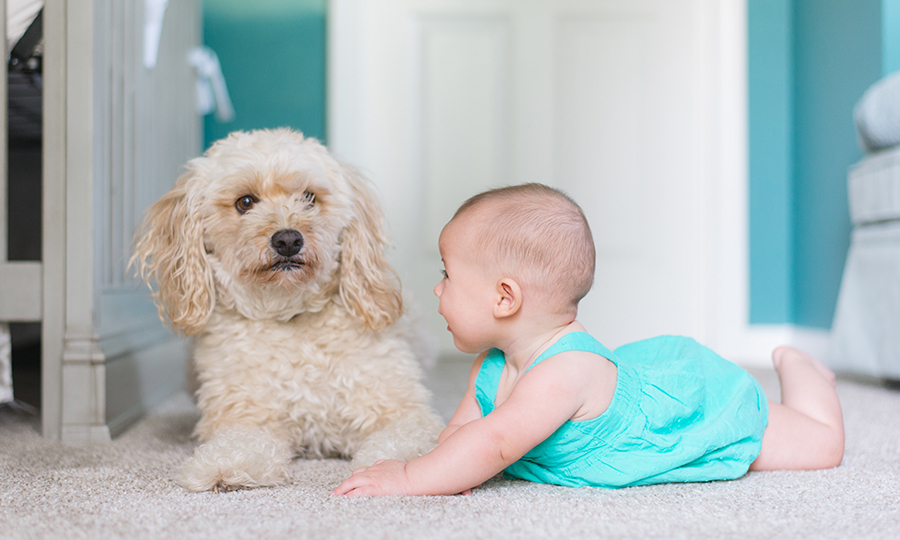
As a new parent with a dog, you may have a lot of concerns about how your puppy will react to your newborn baby. In this section, we address some of the most common concerns parents have about dogs and newborns.
Can dogs lick newborns?
One of the most frequent concerns parents have is whether their dog will try to lick their newborn and if this behavior is safe for the child. While this behavior is usually harmless, it can understandably still be alarming to new parents. Dogs may lick babies for a variety of reasons, such as to show affection or to comfort them. However, it is recommended to discourage your dog from licking your baby's face or hands, as this can lead to the spread of germs and bacteria. To discourage your dog from licking your newborn, you can try redirecting their attention with a toy or treat, or using a firm "no" command. You may not be able to prevent every instance, so it is equally important to practice good oral hygiene with your pup to make sure their mouths do not harbor any harmful bacteria.
Other common concerns about dogs and newborns
The rest of the common concerns new parents may have when introducing their pup to their newborn include allergies, infections, and safety concerns such as dog biting or scratching. Dog bites and scratches are a common concern when introducing a dog to a newborn. Always supervise your dog around your newborn, and seek medical attention immediately if your newborn is bitten or scratched. Keep your dog up to date on their vaccinations and preventives. Never leave your newborn alone with your dog, even if you trust them. Accidents can happen in an instant, and it's not worth the risk. Always make sure your dog has a safe place to go when they need to be alone or are feeling overwhelmed.
If you have any specific concerns or questions, it's always a good idea to consult with your veterinarian or a qualified dog trainer. They can provide you with expert advice and guidance on how to ensure a safe and happy home for both your dog and your newborn.
Raising a dog and a newborn baby together
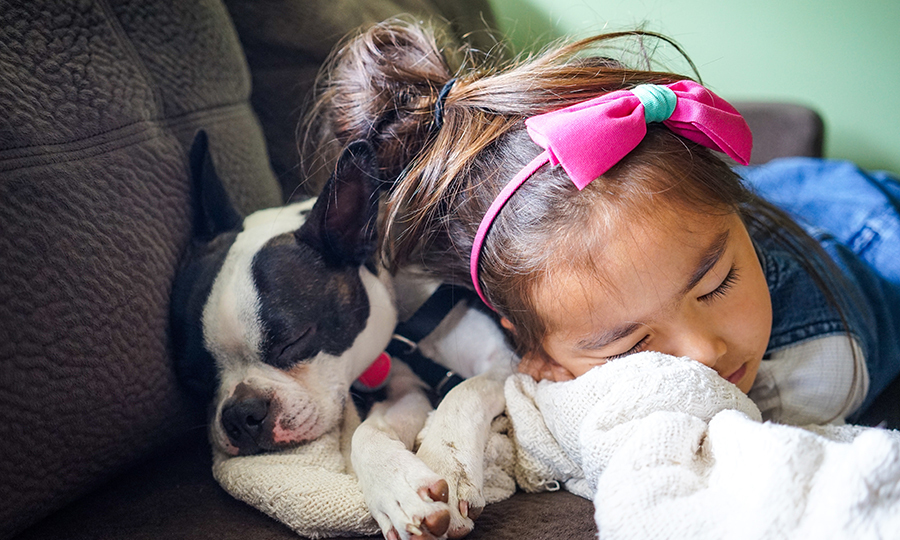
Introducing a newborn baby to your pup can be a wonderful and rewarding experience, but it can also come with some challenges. With careful preparation, training, and supervision, you can help ensure that your dog and baby have a safe and happy coexistence. Remember to gradually introduce your dog to baby-related items, desensitize them to touch, noise, and movement, and make sure they know their basic obedience commands. And when it's time to introduce your dog to your newborn, be sure to do so gradually and always supervise their interactions. Don't forget to address common concerns such as dog bites and scratches, as well as discourage your dog from licking your newborn's face. With patience, consistency, and plenty of love, you can create a harmonious and joyful environment for your growing family.
Read more on the Buddydoc blog page!
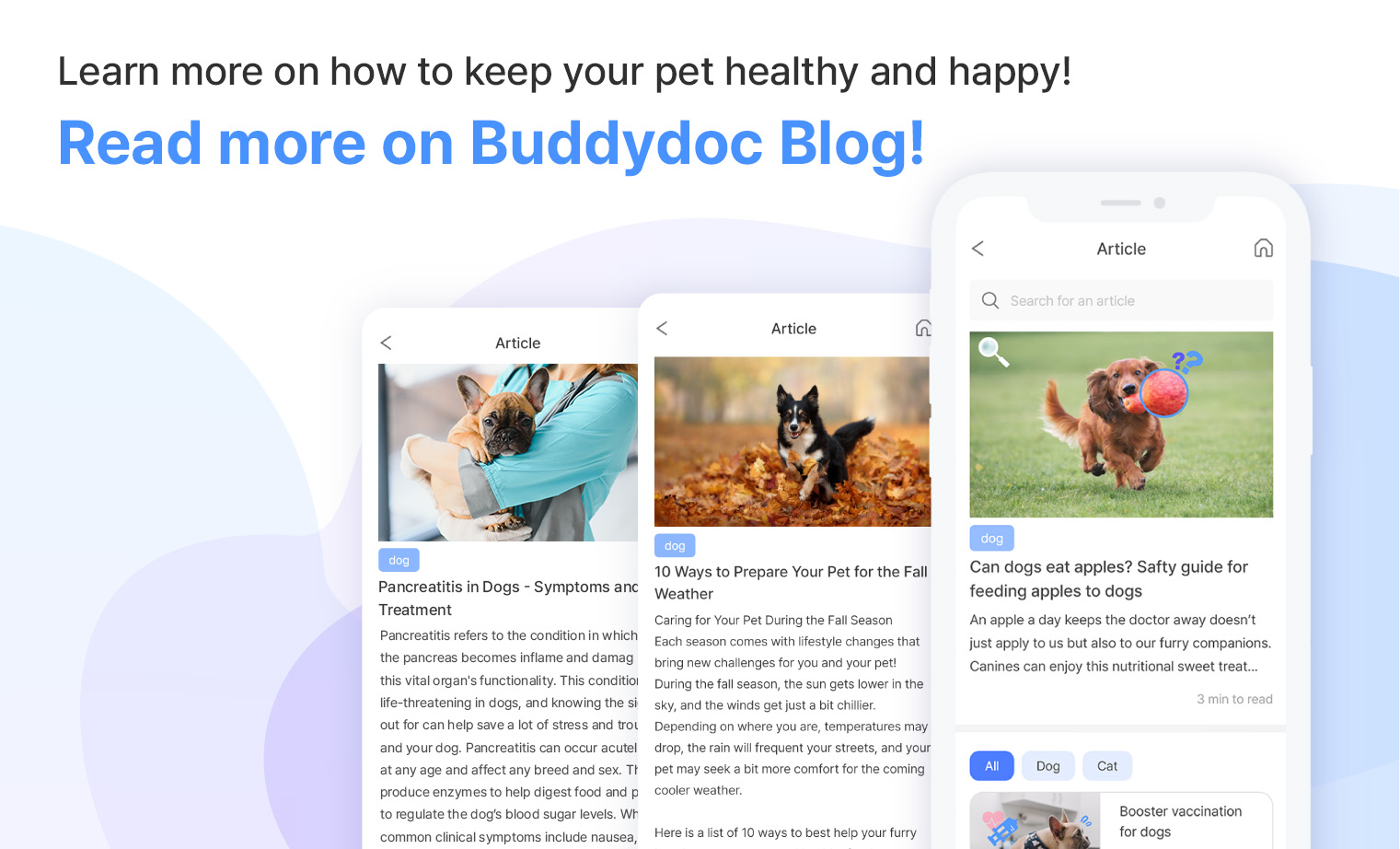
Buddydoc provides a weekly updated blog to keep you informed on the latest and best ways to prepare and take care of your pet all year round. Check out more articles you may be interested in!




